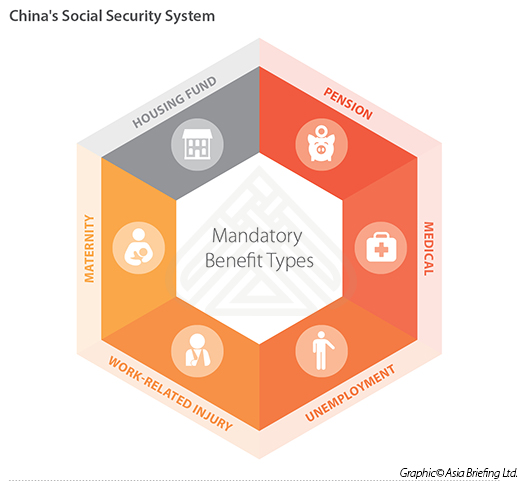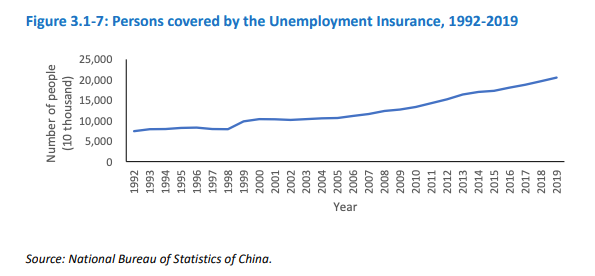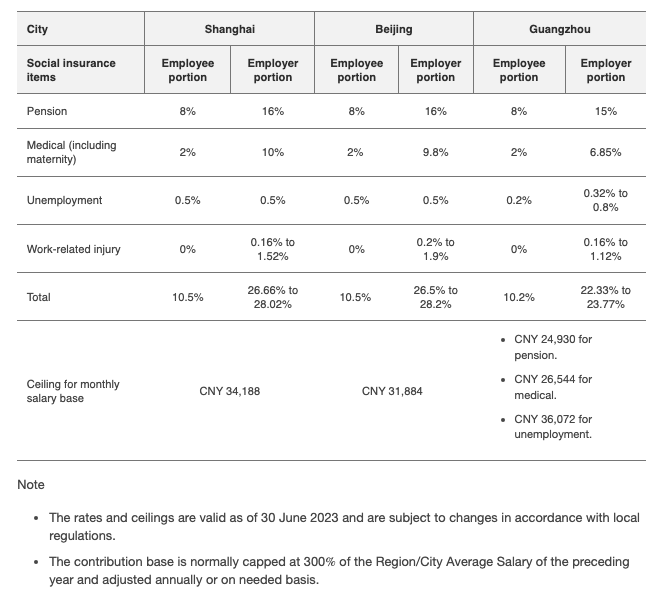Sharing the responsibility of contributing to the Unemployment Insurance fund, employers and employees ensure that individuals experiencing involuntary job loss have access to financial support and job search assistance. Compliance with this system benefits individuals in need and contributes to the overall stability of China’s social security system.
Work-Related Injury Insurance
Work-related injury Insurance in China is a mandatory element of the social security system, providing medical treatment, disability allowances, and survivor benefits for employees who have suffered from work-related injuries or occupational diseases. The contribution rates for Work-Related Injury Insurance range from 0.5% to 2%, depending on the jurisdiction.
This insurance system offers advantages to eligible individuals, such as coverage for medical treatment and rehabilitation, disability allowances based on the severity of the injury, and survivor benefits for dependents. Adhering to insurance regulations and improving medical care for injured workers are challenges.
China has implemented reforms to the Work-Related Injury Insurance system, raising compensation rates for work-related injuries and illnesses and broadening the scope of coverage to include more employees, such as those in the informal sector.
Comprehending and adhering to the Work-Related Injury Insurance requirements allows employers to confirm their employees receive necessary support in case of a work-related injury or illness.
Maternity Insurance
Maternity Insurance in China is designed to provide partial coverage for medical expenses related to childbirth and salary during the maternity leave period. This mandatory insurance offers the following benefits:
- Medical treatment during pregnancy and childbirth
- Maternity leave
- Maternity allowance is based on an individual’s average salary and the number of years they have contributed to the scheme
Women in China can receive maternity leave compensation if they have contributed to the social security system for at least three months. Eligibility requirements must be met to be eligible. The government has implemented reforms to enhance the Maternity Insurance system, such as extending the duration of maternity leave and broadening the scope of coverage to encompass more individuals, including unmarried women and adoptive mothers.
Both employers and employees must know their obligations under the Maternity Insurance system. Timely contributions ensure support during pregnancy and childbirth. Compliance with this system benefits expecting mothers and contributes to the overall stability of China’s social security system.
Housing Fund
The Housing Fund in China is a mandatory savings scheme for employees and employers, with contribution rates established by local governments. The minimum combined contribution rate for China’s Housing Fund is 5%; in Shanghai, the employer and employee contribution percentages stand at 7%. Both employers and employees contribute to the fund, but foreign employees are not required to contribute to China’s Housing Fund.
The Housing Fund aims to assist employees in securing affordable housing and is an important component of China’s social security system. Companies must maintain a single contribution percentage for all employees, and the employee’s contribution percentage must match that of the employer for the Housing Fund. These housing fund contributions are crucial in supporting the social security system.
Awareness and adherence to the Housing Fund’s requirements guarantee employers’ and employees’ compliance with China’s social security system. This compliance provides essential housing support for employees and contributes to the system’s overall stability.
Foreign Employees and China’s Social Security System
Foreign employees working in China are generally required to contribute to the social security system, as stipulated by the 2011 regulation “Interim Measures for the Participation in Social Insurance of Foreigners Employed in China.” However, there are exceptions depending on the individual’s country of origin, as several countries have signed social security exemption treaties with China, including:
- Germany
- South Korea
- Denmark
- Canada
- Finland
- Switzerland
- The Netherlands
- Spain
- Luxembourg
- Japan
- Serbia
Foreign employees and their employers must recognize the specific requirements and exemptions applicable to them to maintain compliance with China’s social security system. Failure to comply with these requirements can have severe repercussions for both the employee and the company, including adverse effects on the company’s credit standing with the government.
Navigating the complex landscape of social security obligations for foreign employees in China can be challenging, but understanding the system and its requirements is crucial for ensuring a smooth and compliant employment experience.
Employer and Employee Contribution Rates
Employer and employee contribution rates for China’s social security system vary by jurisdiction and are subject to annual changes, making compliance a complex process.
Key points to note:
- Local jurisdictions possess the authority to modify the employer and employee contribution rates
- Contribution rates can differ significantly from one region to another
- This variability in contribution rates can be challenging for foreign companies and employees, especially when operating in multiple jurisdictions within China.
Moreover, timely and accurate payment of social security contributions is crucial for ensuring compliance with the system and avoiding potential penalties. Employers must know their obligations to register new staff members with local social security and housing fund bureaus and calculate and make timely contributions for themselves and their employees.
Grasping the subtleties of employer and employee contribution rates in China’s social security system is key to maintaining compliance and circumventing potential pitfalls. By staying informed about the specific requirements in each jurisdiction, employers can ensure that they meet their obligations and provide the necessary support to their employees.






